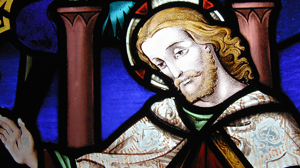Scripture:
2 Maccabees 7:1, 20-31
Luke 19:11-28
Reflection:
Do you remember where you were and what you were doing? I was a freshman in our high school Passionist seminary. Classes had ended for the day and we freshmen were on our way outside to take on the sophomores in a baseball game. Suddenly, an unexpected bell rang out. We gathered in the study hall where we were told that President John F. Kennedy had been shot and killed in Dallas, Texas. All 120 of us went to the Chapel with our Passionist Community to pray the rosary for the repose of his soul.
Prior to that unexpected bell, we were all individuals intent on our own mission and agenda out on the ball field. We were divided into camps – who can throw, who can run, who can hit, who can pitch, who we needed to keep out of the way. All of these differences and divisions melted away as the news hit home. We were of one mind, one heart as we walked to the chapel. This was true not only of the 120 or so high school students. In that moment we were one with our entire country, bonded in our shock and our need to be strong in the face of terror. We were one in our consensus that the government would go on. We would mourn, but we would go on and become perhaps wiser and stronger than before this day. Our faith was in the society we called our American community and it would see us through.
Interestingly, our Sacred Scriptures today present us with tragic experiences which called upon some very tested people to put their faith not just in theological axioms or explanations but in the concrete reality of faith communities who were present to them and supported them through their own terrors. A mother of seven sons witnesses their torture and death. She does so not with empirical proof that it will all work out in the next life. She plants her feet solidly within the faith community and their understanding of a loving and merciful Lord. This is what makes her sacrifice possible. This is what sustains her hope in the life to come when she will be reunited with her seven sons.
Luke gives us a look at another interesting moment in our faith journey. The story of a king. The story of the king’s people while he is off pursuing his crown. It is the story of Herod the Great and his goal to be King of Israel. It is the story of a faith community trying to decide what they should be doing as they wait for the return. As we come to the end of our liturgical year, Saint Luke is here dealing with musings about the end of the world. What is it the faith community should be doing while they await the end? Our evangelist suggests the faith community of Jesus must have their feet firmly planted in the reality of the community itself. Each must take their gifts, abilities, talents, hopes and dreams and help to create as wholesome and holy a life as is possible for the entire faith community as they wait in joyful hope for the coming of Our Lord Jesus Christ. What is freely offered and given to the community will be multiplied. What is hoarded and hidden will be taken away.
In both instances, we are invited to see our faith life as a concrete, everyday reality firmly rooted in the life and traditions of a faith filled community. This is where we are to live. This is where we flourish. This is where we draw our strength for the tragedies of life. This is where we draw our hopes for the fulfillment of divine promises of life eternal.
We are called today to always remember that we are called to live each day to the full, not as unconnected individuals with no sense of bonds, but as faith communities who remain rooted with and in each other providing strength for the day realities of living. We are called to always remember where we are and what we are doing. Perhaps today, we are called to ask ourselves, “What am I called to do today to enhance the connectedness, the daily living realities and the hopes of the part of the faith community where I live?”
Fr. Richard Burke, CP, is a member of St. Paul of the Cross Province. He lives at St. Ann’s Monastery in Scranton, Pennsylvania.
